
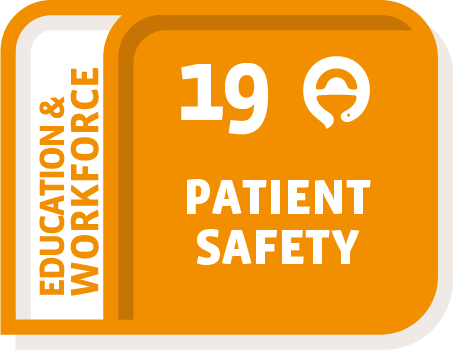
FIP Development Goal 19 Education & Workforce Element
Globally, we will have:
Strategies in place to widen access to medicines & services through a responsive, capable, available and well-distributed pharmaceutical workforce.
Mechanisms
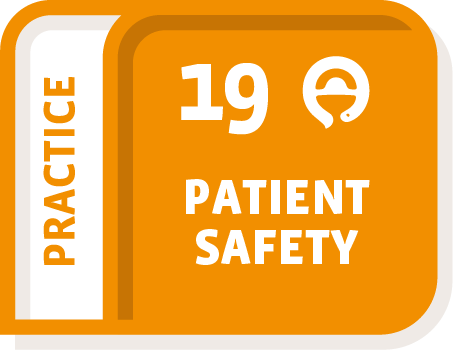
FIP Development Goal 19 Practice Element
Globally, we will have:
Patient safety mechanisms linked to reducing medication- related harm, quality assurance processes and legislation & regulations.
Mechanisms
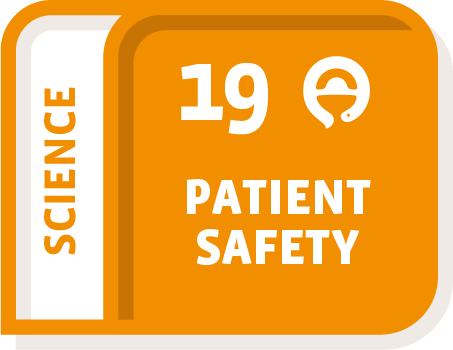
FIP Development Goal 19 Science Element
Globally, we will have:
Safety in the development and use of medicines is promoted through the advancement of drug safety science.
Mechanisms
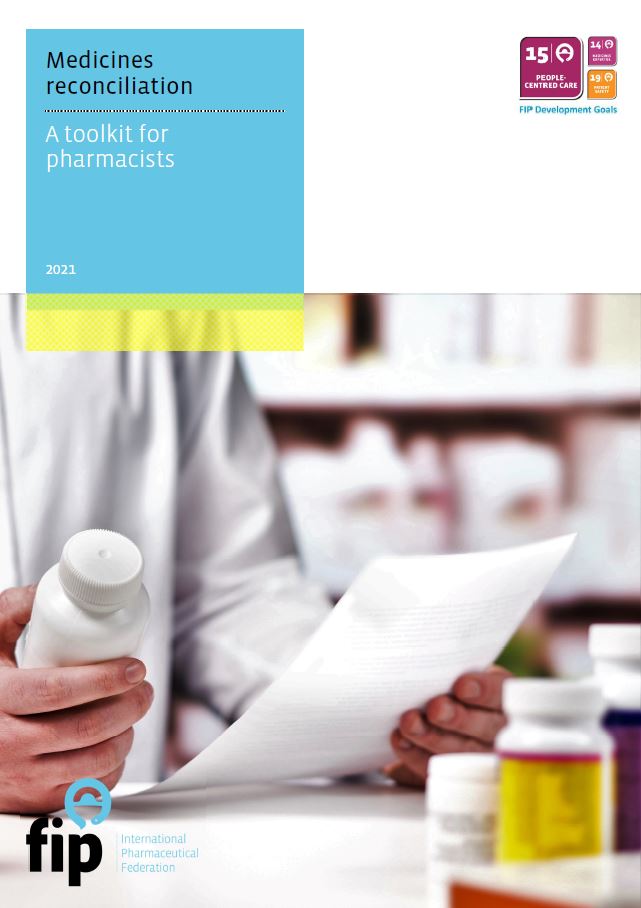
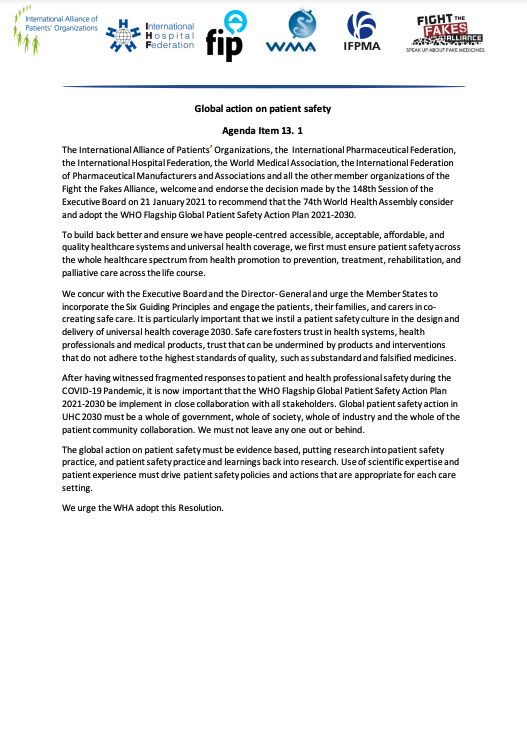
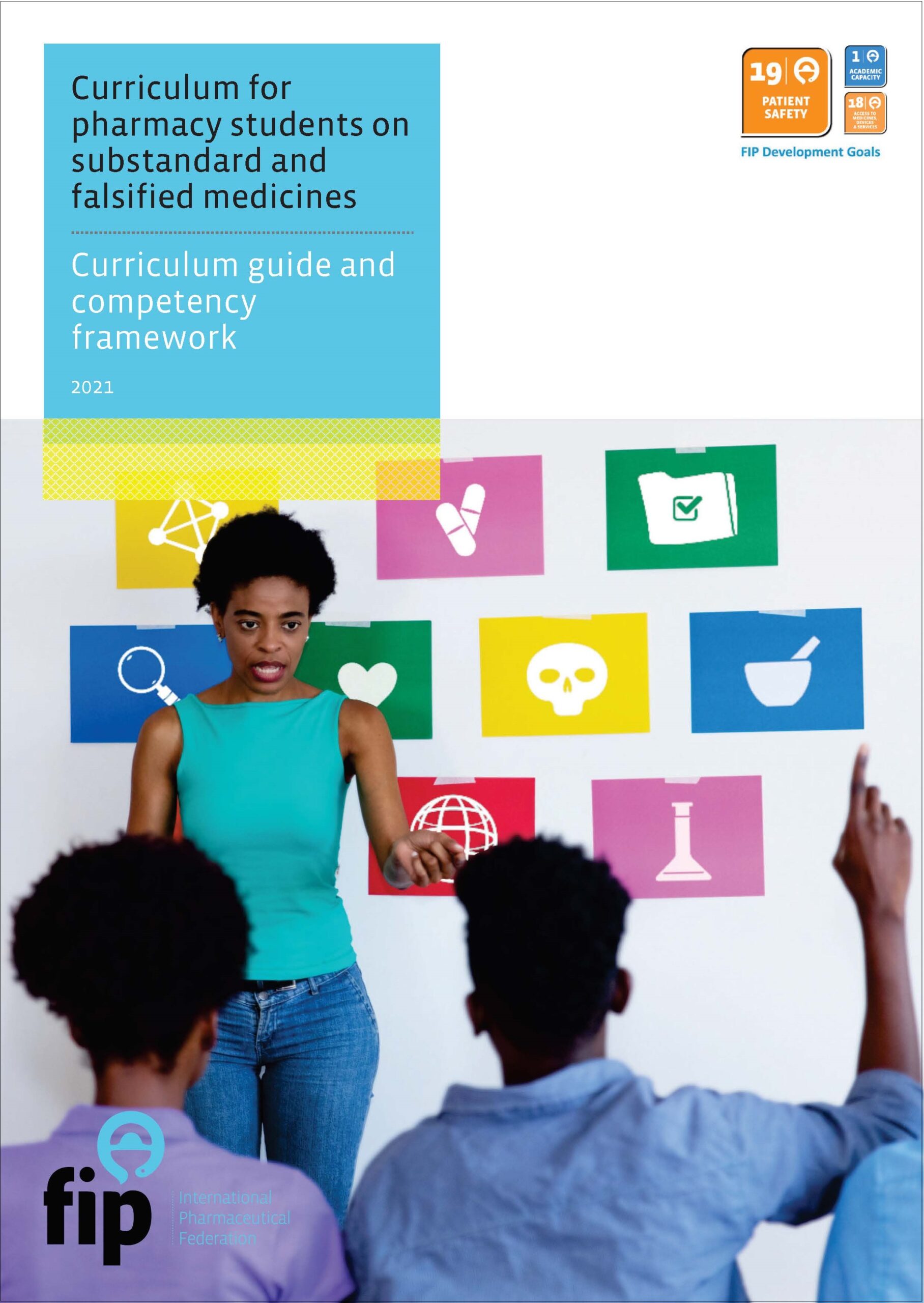
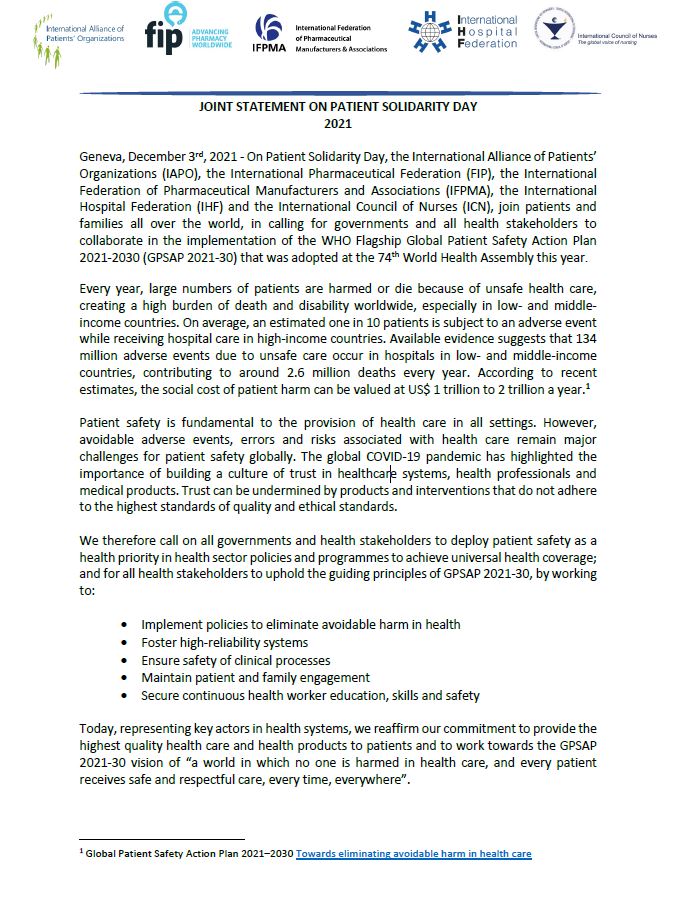
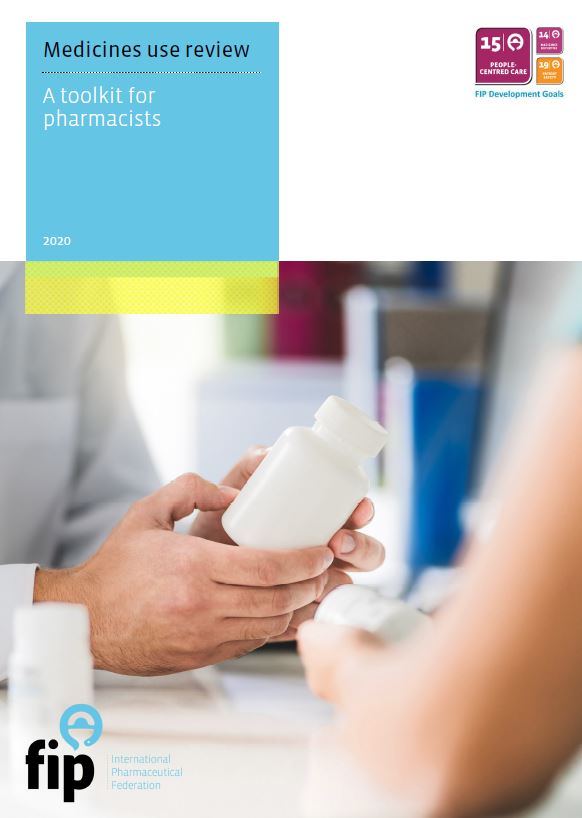
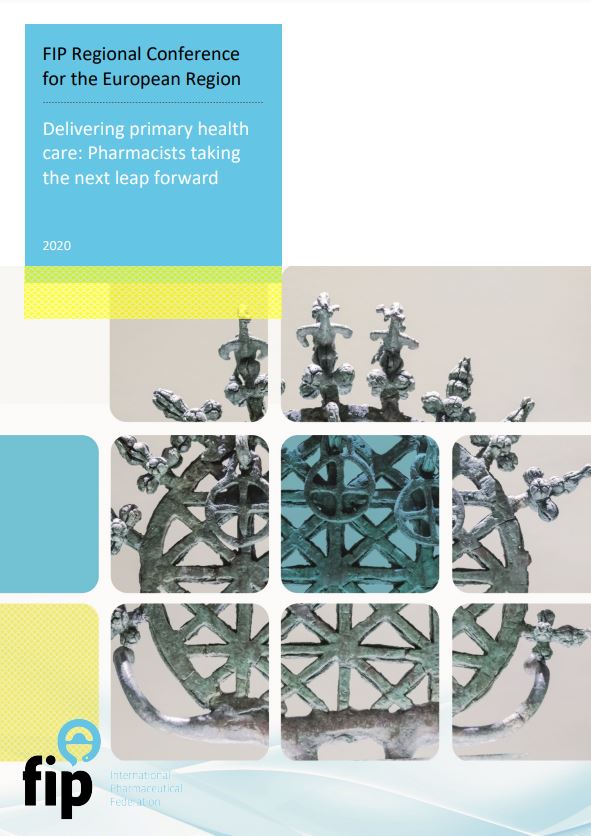
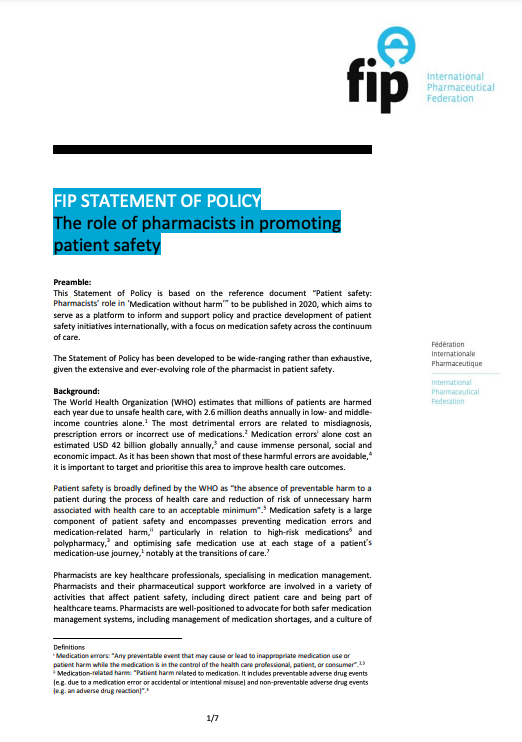
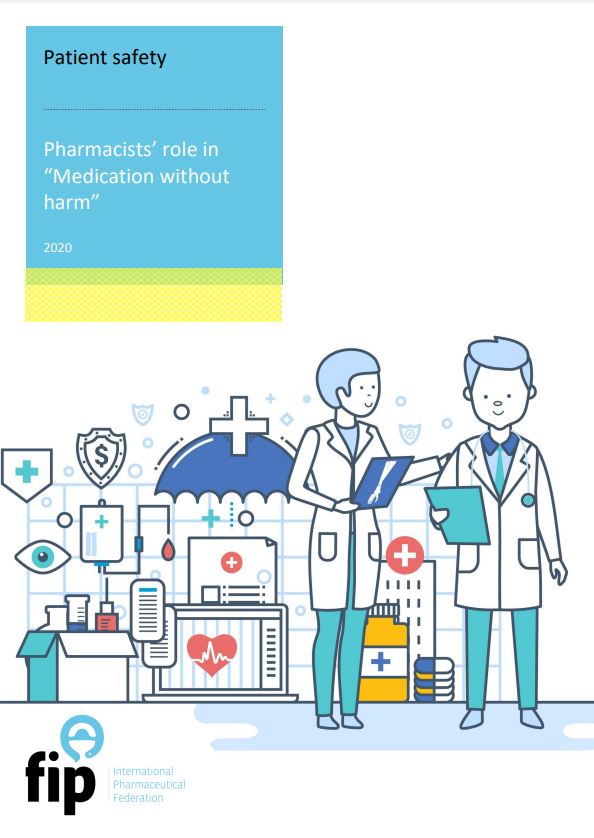
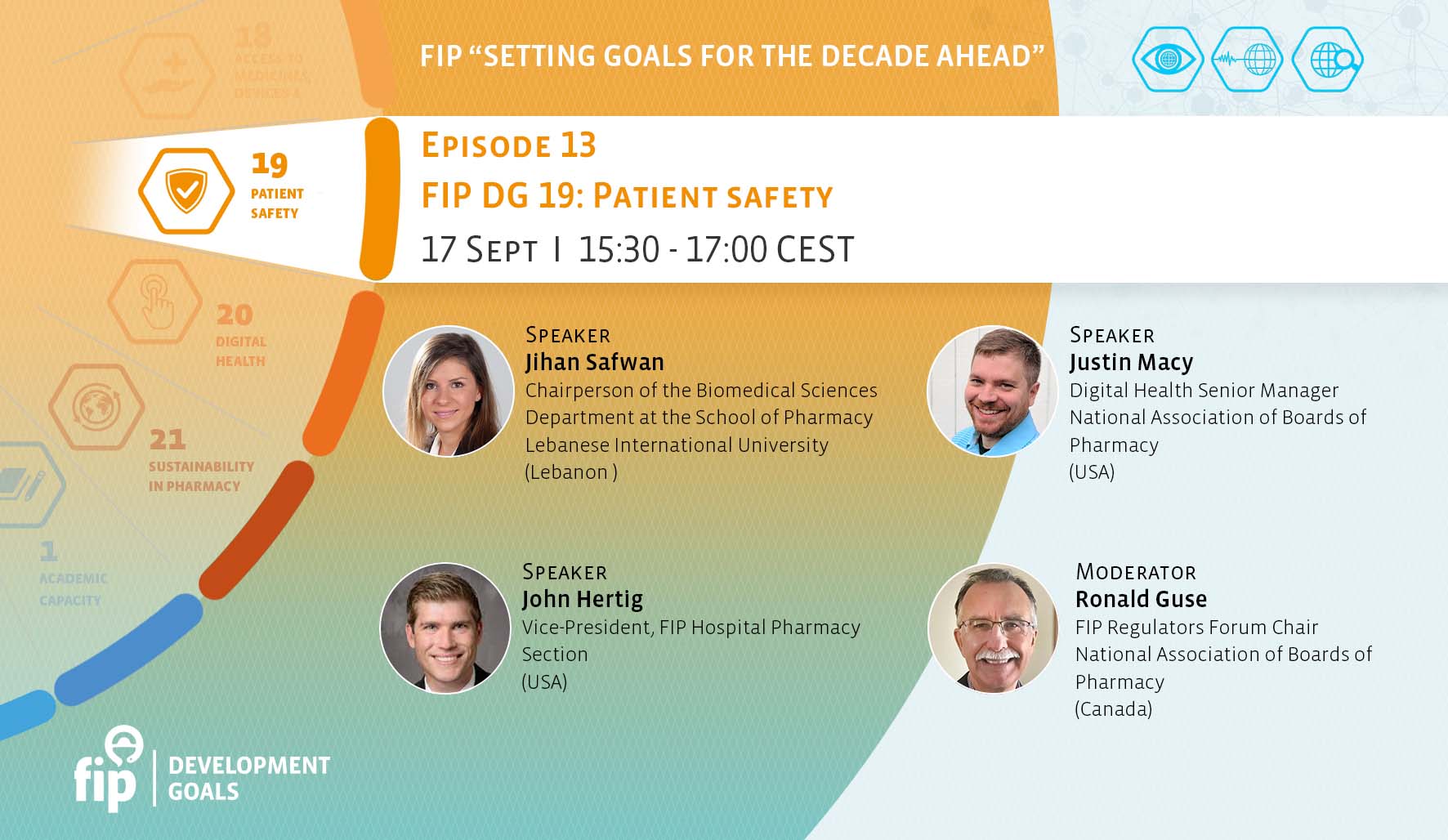
The FIP Development Goals Digital Programme “Setting goals for the decade ahead” is a comprehensive online event series providing coverage of the 21 goals over 21 events in 2021. Starting in March, the 21 digital events aim to provide description, direction and context for each specific goal, with a global plan for the decade ahead and how each nation, within each region can identify and prioritise which goals are the priorities and how the goals can support developments and transformation for them.
This programme is all about engaging the profession and supporting the profession to deliver in relevant and purposeful ways. By engaging our profession, members & colleagues everywhere with these relevant and applicable goals for the decade ahead, we can provide tools, monitoring and evaluation through data evidence, and identifying priorities across practice, science, and workforce & education.
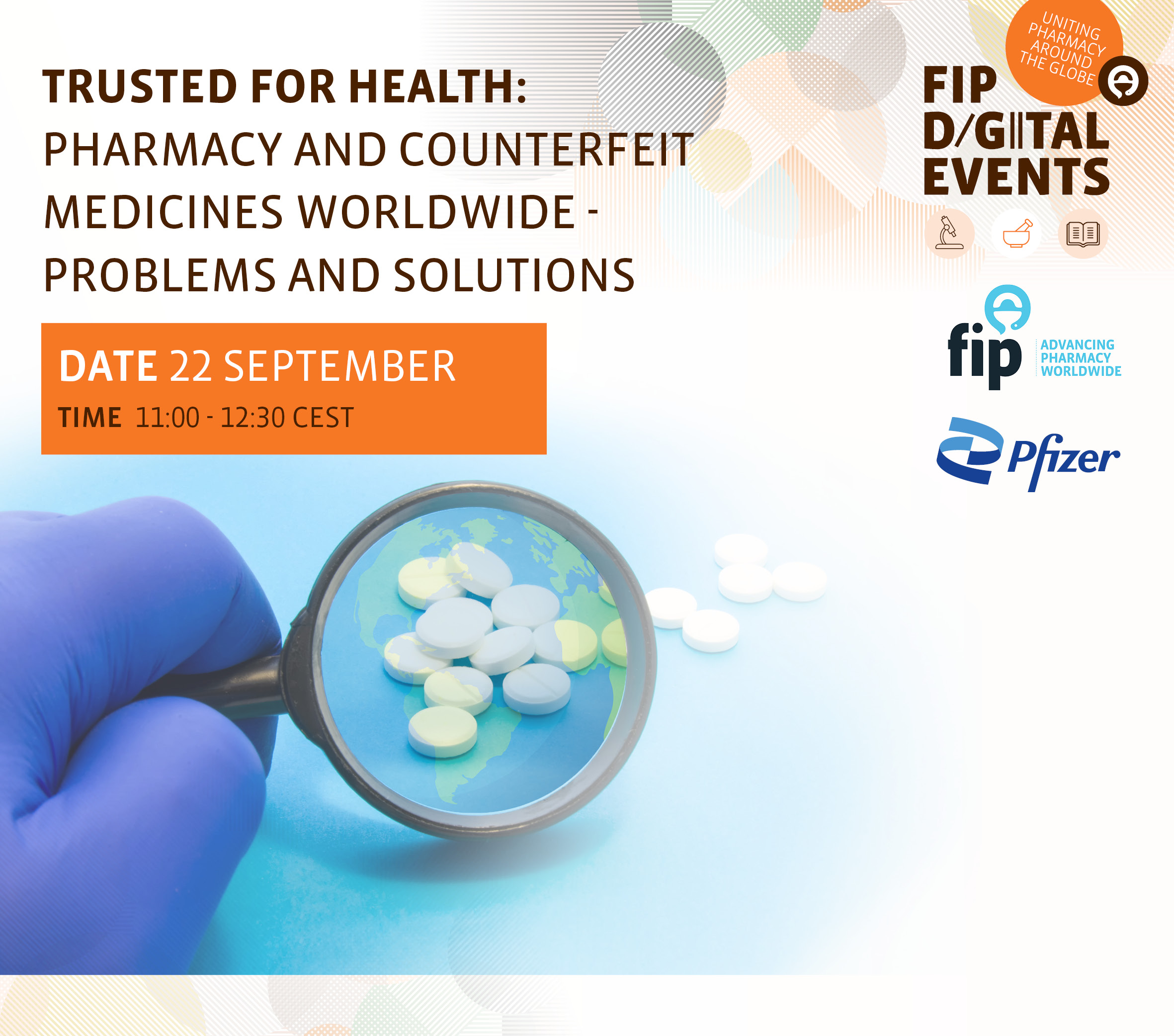
Counterfeit, substandard and falsified medications and medical products endanger public health and FIP believes that pharmacists and pharmaceutical scientists should contribute to patient safety by actively participating in the fight against counterfeit, substandard, and falsified medicines.
Adapting and expanding on the theme of World Pharmacy Week (Pharmacy: Always trusted for your health), we would like to invite you to attend this webinar and learn more about the role of pharmacists in the emerging threat of counterfeit, falsified, and substandard medicines. The event has been sponsored by an unrestricted educational grant by Pfizer.
The expected outcomes of the event are:
1- to discuss the role of pharmacists in combating counterfeit, falsified, and substandard medicines.
2- to highlight various regional and global strengths, accomplishments, and success stories in the fight against counterfeit medications.
3- to identify emerging regional and global threats and challenges related to counterfeit medication.
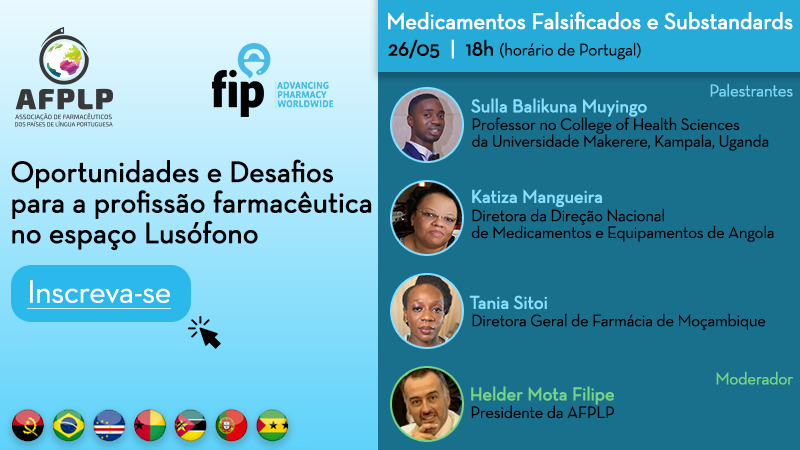
O tema deste evento digital é o papel do farmacêutico no combate e gestão dos Medicamentos Falsificados e Substandards.
Esta pandemia acentuou as inequidades e as dificuldades no acesso aos medicamentos essenciais que promovem ainda mais este flagelo global.
Ouviremos a experiência da implementação do guia curricular da FIP desenvolvido para suporte à capacitação de farmacêuticos no combate a medicamentos falsificados e substandards, seguida da partilha das intervenções desenvolvidas em Angola, Moçambique e Portugal.
Os oradores partilharão a sua visão e experiência, permitindo a participação e debate de participantes dos 7 países de Lingua Portuguesa.
The following FIP programmes of work and structures support the implementation of this Goal:
Falsified and Substandard Medicines